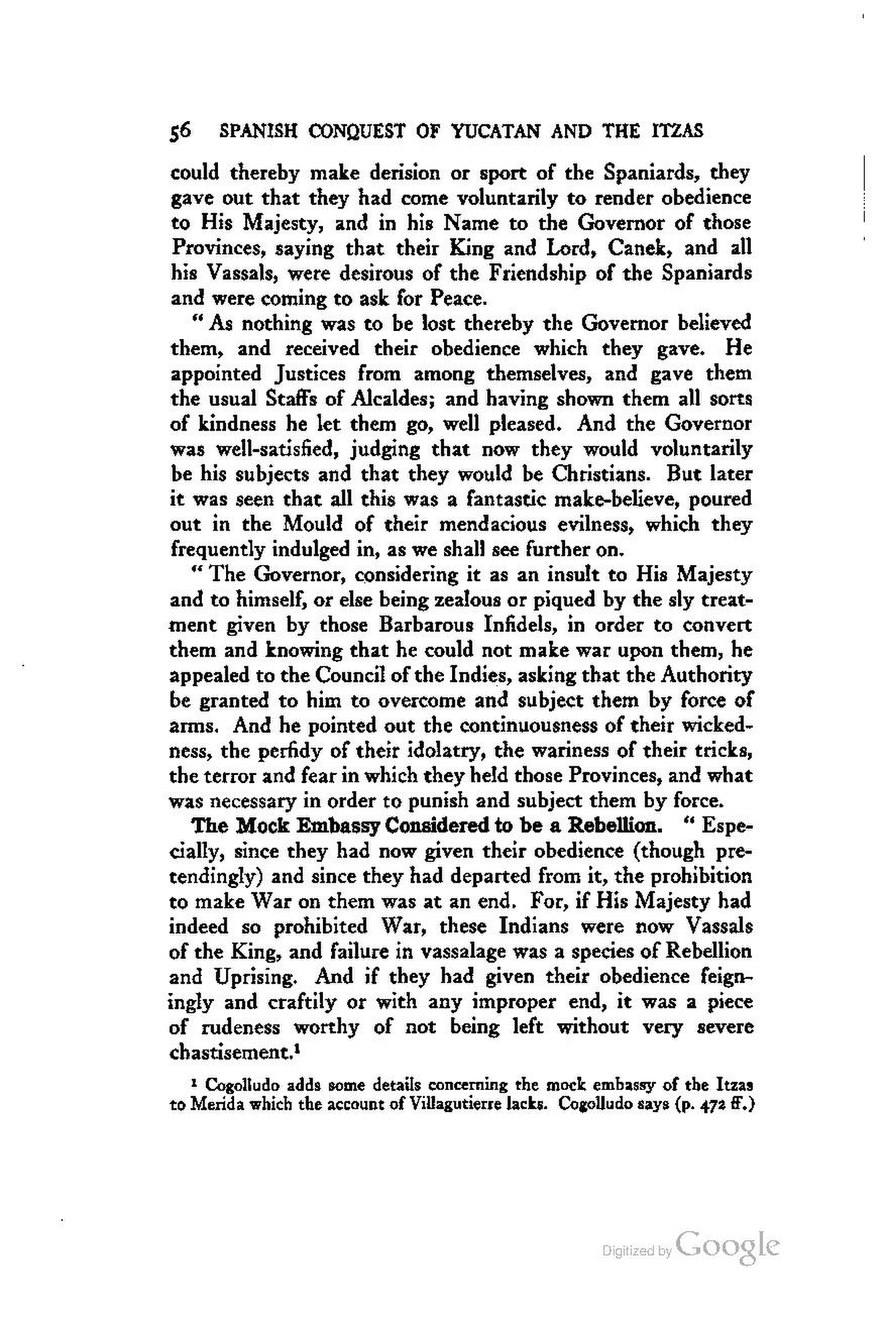could thereby make derision or sport of the Spaniards, they gave out that they had come voluntarily to render obedience to His Majesty, and in his Name to the Governor of those Provinces, saying that their King and Lord, Canek, and all his Vassals, were desirous of the Friendship of the Spaniards and were coming to ask for Peace.
“As nothing was to be lost thereby the Governor believed them, and received their obedience which they gave. He appointed Justices from among themselves, and gave them the usual Staffs of Alcaldes; and having shown them all sorts of kindness he let them go, well pleased. And the Governor was well-satisfied, judging that now they would voluntarily be his subjects and that they would be Christians. But later it was seen that all this was a fantastic make-believe, poured out in the Mould of their mendacious evilness, which they frequently indulged in, as we shall see further on.
“The Governor, considering it as an insult to His Majesty and to himself, or else being zealous or piqued by the sly treatment given by those Barbarous Infidels, in order to convert them and knowing that he could not make war upon them, he appealed to the Council of the Indies, asking that the Authority be granted to him to overcome and subject them by force of arms. And he pointed out the continuousness of their wickedness, the perfidy of their idolatry, the wariness of their tricks, the terror and fear in which they held those Provinces, and what was necessary in order to punish and subject them by force.
The Mock Embassy Considered to be a Rebellion. “Especially, since they had now given their obedience (though pretendingly) and since they had departed from it, the prohibition to make War on them was at an end. For, if His Majesty had indeed so prohibited War, these Indians were now Vassals of the King, and failure in vassalage was a species of Rebellion and Uprising. And if they had given their obedience feigningly and craftily or with any improper end, it was a piece of rudeness worthy of not being left without very severe chastisement.[1]
- ↑ Cogolludo adds some details concerning the mock embassy of the Itzas to Merida which the account of Villagutierre lacks. Cogolludo says (p. 472 ff.)
